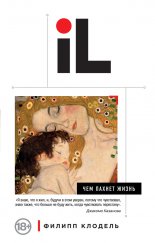»стори€ ƒревнего мира. ќт истоков ÷ивилизации до падени€ –има Ѕауэр —ьюзен

Л828Ы Thapar, Early India, p.†149.
Л829Ы Fenton et al., p.†90.
Л830Ы »з введени€ к: J a taka, 1.54, translated by Henry Clarke Warren in Buddhism in Translation (1896), pp.†56Ц61.
Л831Ы Quoted in Michael Carrithers, Buddha: A Very Short Introduction (2001), p.†46.
Л832Ы Ibid., p.†62.
Л833Ы Karen Armstrong, Buddha (2004), p.†9.
Л834Ы Ibid., p. xi.
Л835Ы A. L. Basham, The Wonder That Was India (1963), p.†47.
Л836Ы Thapar, Early India, p.†152.
Л837Ы Xueqin, p.†5.
Л838Ы Gai Shiqi, ZuozhuanJishibenmuo, vol.†45 (1979), quoted in Xueqin, p.†170.
Л839Ы ChТien, p.†77.
Л840Ы Cho-yun Hsu, Ancient China in Transition: An Analysis of Social Mobility, 722Ц222 BC (1965), pp.†59Ц60.
Л841Ы Jonathan Clements, Confucius: A Biography (2004), pp.†10Ц15. я благодарна мистеру лементсу за сведение беспор€дочных подробностей жизни онфуци€ в единый хронологический список.
Л842Ы Clements, pp.†21Ц22.
Л843Ы James Legge, trans., The Sacred Books of the East, vol.†27: The Texts of Confucianism, Li Ki, 1-’ (1968), 17.9.6.
Л844Ы Ibid., 2.1.7.
Л845Ы Ibid., 3.2.1,12.
Л846Ы James Legge, trans., Confucian Analects, The Great Learning, and the Doctrine of the Mean (1971), 7.19.
Л847Ы Ibid., 1.1.
Л848Ы Ibid., 3.1,3.
Л849Ы Clements, p.†39.
Л850Ы ChТien, p.†787.
Л851Ы Jaroslav Prusek, Chinese Statelets and the Northern Barbarians in the Period 1400Ц300 BC (1971), p.†187.
Л852Ы Hsu, p.†69.
Л853Ы Sun-Tzu, The Art of War, translated by Lionel Giles (2002), 2.6.
Л854Ы Ibid., 3.2.
Л855Ы Ibid., 2.2Ц4.
Л856Ы Ibid., 1.18Ц19.
Л857Ы Ibid., 9.24, 26.
Л858Ы Quoted in Xueqin, p.†7.
Л859Ы Herodotus, 1.216.
Л860Ы Ibid., 1.214.
Л861Ы Ibid., 4.159.
Л862Ы Ibid., 2.161.
Л863Ы James Henry Breasted, Ancient Records of Egypt: Historical Documents from the Earliest Times to the Persian Conquest (1906Ц1907), 4.1000, pp.†510Ц511.
Л864Ы Herodotus, 2.162.
Л865Ы Breasted, Ancient Records, 4.1003, p.†511.
Л866Ы Ibid., 4.1005, p.†512.
Л867Ы J. M. Cook, The Persian Empire (1983), p.†46.
Л868Ы Briant, p.†57.
Л869Ы Herodotus, 3.64Ц66.
Л870Ы J. M. Cook, Persian Empire, p.†50.
Л871Ы Herodotus, 3.72.
Л872Ы Maria Brosius, trans, and ed., The Persian Empire from Cyrus II to Artaxerxes I (2000), p.†21.
Л873Ы Ibid., p.†48.
Л874Ы Ibid., p.†23.
Л875Ы J. M. Cook, Persian Empire, p.†53.
Л876Ы Brosius, pp.†32Ц33.
Л877Ы Ezra 5:3Ц9, NIV.
Л878Ы Basham, p.†47.
Л879Ы Thapar, Early India, p.†154.
Л880Ы Keay, p.†67.
Л881Ы Ibid.
Л882Ы Thapar, Early India, p.†155.
Л883Ы Herodotus, 4.44.
Л884Ы Olmstead, History of the Persian Empire, p.†145; Herodotus, 3.94 and 4.44; Brosius, p.†40.
Л885Ы Olmstead, History of the Persian Empire, p.†145.
Л886Ы Herodotus, 4.127.
Л887Ы Ibid., 4.64Ц65, 73Ц75.
Л888Ы Ibid., 4.89.
Л889Ы The Persians, in Aeschylus, The Complete Plays, vol.†2, translated by Carl R. Mueller (2002), p.†12
Л890Ы Herodotus, 4.126,131.
Л891Ы Briant, p.†144.
Л892Ы Herodotus, 5.3.
Л893Ы Morkot, p.†65.
Л894Ы Peter Green, Alexander of Macedon, 356Ц323 BC: A Historical Biography (1991), pp.†1Ц2.
Л895Ы Herodotus, 5.18.
Л896Ы Waterfield, p.†51.
Л897Ы Solon 29, in Plutarch, Greek Lives, p.†73; Athenian Constitution, in Rackhain, Aristotle in 23 Volumes, vol.†20, sees. 13Ц14.
Л898Ы Solon 29, in Plutarch, Grer Lives, p.†74.
Л899Ы Herodotus, 1.61.
Л900Ы Athenian Constitution, in Rackham, Aristotle in 23 Volumes, vol.†20, sec. 15.
Л901Ы Ibid., sec. 16.
Л902Ы Ibid., sec. 19
Л903Ы Lycurgus 16, in Plutarch, Greek Lives, p.†26.
Л904Ы Pomeroy et al., p.†152.
Л905Ы Herodotus, 5.73.
Л906Ы Athenian Constitution, in Rackham, Aristotle in 23 Volumes, vol.†20, sec. 21.
Л907Ы Politics, in Rackham, Aristotle in 23 Volumes, vol.†21,1302b; Buckley, p.†145.
Л908Ы Herodotus, 5.97.
Л909Ы Ibid., 5.96.
Л910Ы Ibid., 5.99.
Л911Ы Buckley, pp.†161Ц162.
Л912Ы H. T. Wallinga, ЂThe Ancient Persian Navy and its Predecessorsї, in Achaemenid History I: Sources, Structures, and Synthesis, ed. Heleen Sancisi-Weerdenburg (1987), p.†69.
Л913Ы Herodotus, 5.102.
Л914Ы Herodotus, 5.103.
Л915Ы H. T. Wallinga, in Sancisi-Weerdenburg, p.†69.
Л916Ы Herodotus, 6.17.
Л917Ы Herodotus, 6.19.
Л918Ы Herodotus, 6.112.
Л919Ы John Curtis, Ancient Persia (1990), p.†41.
Л920Ы Garthwaite, p.†36; Briant, p.†547.
Л921Ы H. T. Wallinga, in Sancisi- Weerdenburg, p.†43; Shaw, p.†384.
Л922Ы M. Jameson, in Peter Green, Xerxes ofSalamis (Praeger, 1970), p.†98, quoted in Pomeroy et al., p.†194.
Л923Ы Pomeroy et al., p.†195.
Л924Ы Plutarch, Themistocles, sec. 9, in Plutarch's Lives, vol.†1, The Dryden Translation.
Л925Ы Aeschylus, The Complete Plays, pp.†139Ц140.
Л926Ы Ibid., p.†140.
Л927Ы Ibid., p.†142.
Л928Ы Plutarch, Themistocles, sec. 16, in Plutarch's Lives, vol.†1, The Dryden Translation.
Л929Ы Herodotus, 9.84.
Л930Ы H. T. Wallinga, in Sancisi-Weerdenburg, p.†74.
Л931Ы Aeschylus, Persians (1981), pp.†67Ц68.
Л932Ы Herodotus, 9.106.
Л933Ы Waterfield, p.†72.
Л934Ы Thucydides. 1.90.2.
Л935Ы Ibid., 1.93.2.
Л936Ы Ibid., 1.133Ц134.
Л937Ы Plutarch, Themistocles, sees. 19Ц21, in PlutarchТs Lives, vol.†1, The Dryden Translation.
Л938Ы Plutarch, Themistocles, sec. 22, in PlutarchТs Lives, vol.†1, The Dryden Translation.
Л939Ы Plutarch, Themistocles, sec. 29, in PlutarchТs Lives, vol.†1, The Dryden Translation.
Л940Ы Thucydides, 1.138.4; Plutarch, Themistocles, sec. 31, in PlutarchТs Lives, vol.†1, The Dryden Translation.
Л941Ы Esther 2:12Ц16.
Л942Ы Herodotus, 9.585.
Л943Ы Brosius, p.†54.
Л944Ы Diodorus Siculus, 11.69.2Ц6.
Л945Ы J. M. Cook, Persian Empire, p.†127.
Л946Ы Thucydides, 1.103.2.
Л947Ы Ibid., 1.99.4.
Л948Ы Ibid., 1.99.1Ц2.
Л949Ы Pericles 13, Plutarch, in Greek Lives, p.†156.
Л950Ы Thucydides, 1.108.4.
Л951Ы Pomeroy et al., p.†251.
Л952Ы Thucydides, 1.45.3.
Л953Ы Ibid., 1.50.2.
Л954Ы Ibid., 2.7.1.
Л955Ы Ibid., 2.43.1.
Л956Ы Ibid., 2.49.2Ц8.
Л957Ы Thucydides, 2.4.
Л958Ы Thucydides, 2.52.2Ц3.
Л959Ы J. M. Cook, Persian Empire, p.†129.
Л960Ы Alcibiades 1Ц3, in Plutarch, Greek Lives.
Л961Ы Pomeroy et al., p.†306.
Л962Ы Buckley, p.†388.
Л963Ы Pomeroy et al., p.†309.
Л964Ы Thucydides, 7.51.1.
Л965Ы Ibid., 7.84.2Ц5,85.1.
Л966Ы Aristophanes, Lysistrata (1912), p.†1.
Л967Ы Alcibiades 24, in Plutarch, Greek Lives.
Л968Ы Thucydides, 8.78.
Л969Ы Alcibiades 35, in Plutarch, Greek Lives.
Л970Ы Alcibiades 37, in Plutarch, Greek Lives.
Л971Ы Xenophon, Hellenica, 2.2.10, translated by Peter Krentz.
Л972Ы Waterfield, p.†209; Xenophon, Hellenica, 2.2.23; Victor Davis Hanson, in Thucydides, p.†549.
Л973Ы Waterfield, p.†210.
Л974Ы Athenian Constitution, in Rackham, Aristotle in 23 Volumes, vol.†20, p.†35.
Л975Ы Livy, Early History of Rome, 2.21.
Л976Ы Ibid., 2.24.
Л977Ы Mackay, p.†34.
Л978Ы Livy, Early History of Rome, 2.23.
Л979Ы Ibid., 2.32.
Л980Ы Ibid., 2.32.
Л981Ы Ibid., 3.35.
Л982Ы Ibid., 3-333.
Л983Ы „астично основано на: Oliver J. Thatcher, ed., The Library of Original Sources, vol.†3: 7Tie Roman World (1901), pp.†9Ц11.
Л984Ы Livy, Eariy History of Rome, 5.21.
Л985Ы Ibid., 5.32.
Л986Ы Ibid., 5.36.
Л987Ы Ibid., 5.38.
Л988Ы Ibid., 5.41.
Л989Ы Ibid., 5.47.
Л990Ы Cunliffe, pp.†21Ц22.
Л991Ы Livy, Early History of Rome, 5.55.
Л992Ы ChТien, p.†79.
Л993Ы Fairbank and Goldman, p.†54.
Л994Ы J. J. L. Duyvendak, trans., in his introduction to The Book of Lord Shang.A Classic of the Chinese School of Law (1928), p.†1.
Л995Ы ChТien, p.†108.
Л996Ы Cotterell, China, p.†53.
Л997Ы Shih chi 68, translated in Duyvendak, p.†14.
Л998Ы Ibid., p.†15.
Л999Ы Ibid., p.†16.
Л1000Ы Shih chi 68, translated in Cotterell, China, p.†55.
Л1001Ы Shu-Ching Lee, ЂAgrarianism and Social Upheaval in Chinaї, American Journal of Sociology 56:6 (1951), p.†513.
Л1002Ы The Book of Lord Shang, translated by Duyvendak, p.†180.
Л1003Ы Shih chi 68, in Duyvendak, p.†16.
Л1004Ы Shih chi 68, in Cotterell, China, p.†57.
Л1005Ы Shih chi 69, in Duyvendak, pp.†16Ц17.
Л1006Ы Ibid., p.†17.
Л1007Ы ChТien, p.†79.
Л1008Ы Franz Michael, China Through the Ages: History of a Civilization (1986), p.†48.
Л1009Ы Mencius, I.A.7.
Л1010Ы Fairbank and Goldman, pp.†53Ц54.
Л1011Ы Quoted in Michael, pp.†49Ц50.
Л1012Ы ЂGiving Away a Throneї, in The Complete Works of Chuang Tzu, translated by Burton Watson (1968), n.p.
Л1013Ы ЂDiscussion on Making All Things Equalї, in Watson, The Complete Works ofChuang Tzu.
Л1014Ы Pomeroy et al., pp.†327Ц328.
Л1015Ы Scene 1, in Aristophanes, The Birds and Other Plays, translated by David Barrett and Alan H. Sommerstein (2003), p.†221.
Л1016Ы Scene 3, Ibid., p.†257.
Л1017Ы J. M. Cook, Persian Empire, p.†212.
Л1018Ы Plutarch, Artaxerxes, in PlutarchТs Lives, vol.†2, The Dryden Translation.
Л1019Ы Xenophon, The Persian Expedition (also known as Anabasis) 1.1, translated by Rex Warner (1972), p.†56.
Л1020Ы Ёти подробности о тесии использованы ƒиодором —ицилийским, см. введение ƒжорджа оквелла (George Cawkwell) к уорнеровскому переводу сенофонта: Xenophon, The Persian Expedition, p.†40.
Л1021Ы Plutarch, Artaxerxes, in PlutarchТs Lives, vol.†2, The Dryden Translation, p.†646.
Л1022Ы Xenophon, The Persian Expedition, 1.4.
Л1023Ы Ibid., pp.†86Ц87.
Л1024Ы Ibid., 4.5.
Л1025Ы Ibid., 4.7.
Л1026Ы Plutarch, Artaxerxes, in PlutarchТs Lives, vol.†2, The Dryden Translation, p.†658.
Л1027Ы Clayton, pp.†201Ц202.






